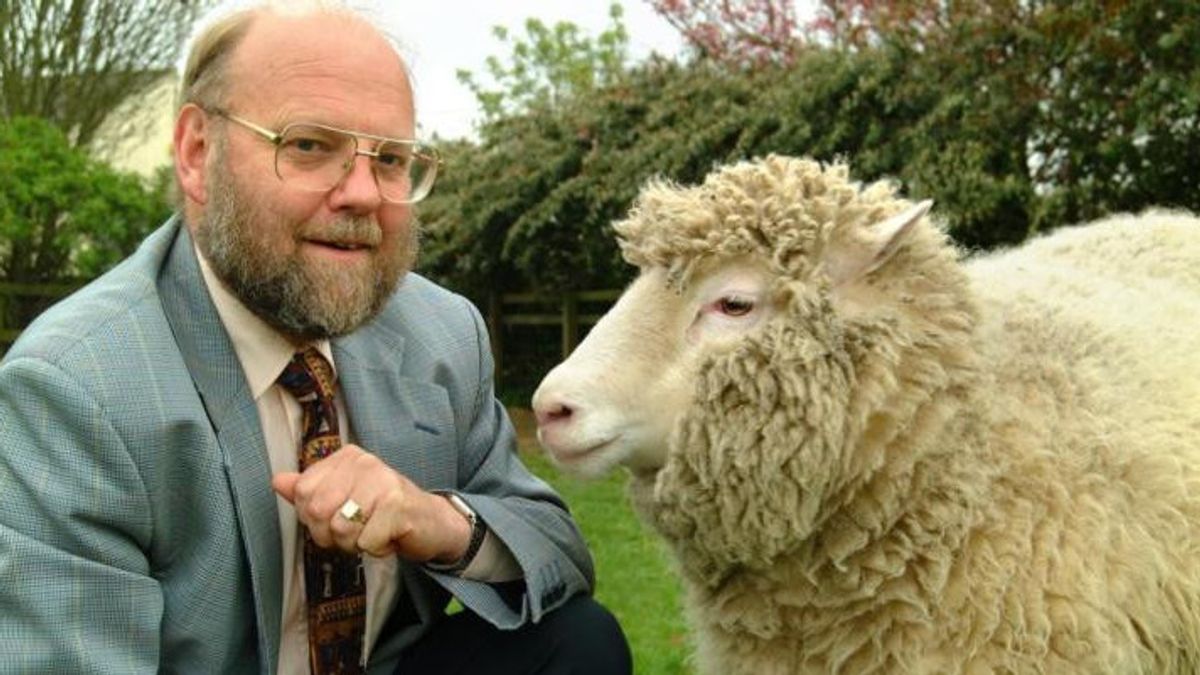Professor Sir Ian Wilmut, the scientist who led the team that nominated Dolly the Sheep, has died at the age of 79.
Referred to as the'scientific world', the researchers' death came five years after he revealed that he had been diagnosed with Parkinson's disease a disease that was expected to be cured by Dolly's cloning discovery.
Dolly herself was the first mammal ever cloned from adult cells.
Ketika Sir Ian mengungkapkan hasil penelitian mengenai Dolly pada tahun 1997, hal itu membuka jalan bagi potensi perawatan dengan sel punca untuk mengatasi kondisi seperti Parkinson, penyakit degeneratif yang memengaruhkan lebih dari 150,000 orang di Inggris.
"We are deeply saddened to hear the news of the death of Professor Sir Ian Wilmut. He is the main figure in the scientific world, leading the Roslin Institute team that cloned Dolly the Sheep the first mammal to be cloned from adult cells that changed scientific thinking at the time," said Professor Sir Peter Mathieuson, rector and vice chancellor of the University of Edinburgh..
"This innovation continues to encourage a lot of progress that has been made in the field of regenerative medicine that we see today. Our thoughts are with Ian's family at this time," said Mathieson.
In 2018, in an interview with the BBC, Sir Ian said he had been diagnosed with Parkinson's just before Christmas the previous year.
"There is a sense of clarity, at least now we know and we can start doing something about it. Apart from of course being disappointed that this might shorten my life a little bit, and more specifically, it will change the quality of life," said Wilmut at the time.
"With sad news about Ian Wilmut's death today, science has lost a big name. Ian leads the research team that created the mammals that were first cloned in Dolly," said Professor Bruce Whitelaw, director of the Roslin Institute.
"These animals have had a huge positive impact on how people interact with science, and how scientists interact with society. Their legacy encourages many interesting applications emerging from animal and human biology research," he added.
Parkinson causes various symptoms, including muscle stiffness, slow movement, loss of smell, and accidental shaking.
There are treatments available that can help, but nothing can be done to slow down or stop the development of this degenerate disease.
VOIR éGALEMENT:
On Dolly's 20th anniversary of 2016, Sir Ian said the widespread use of treatment with punca cells for conditions like Parkinson's would likely be 'a few decades away'.
He acknowledged that initially, scientists including himself had been carried away by the revolutionary prospects for cell therapy.
Dolly, who was born at the Roslin Institute in Edinburgh on July 5, 1996, made history as the first mammal to be cloned from adult cells.
Sir Ian said that he never hid the fact that Dolly's creation was mostly a lucky result.
He was the only lamb to survive 277 cloning attempts and was made from a milk gland cell drawn from six-year-old Finn Dorset sheep.
The English, Chinese, Japanese, Arabic, and French versions are automatically generated by the AI. So there may still be inaccuracies in translating, please always see Indonesian as our main language. (system supported by DigitalSiber.id)


















